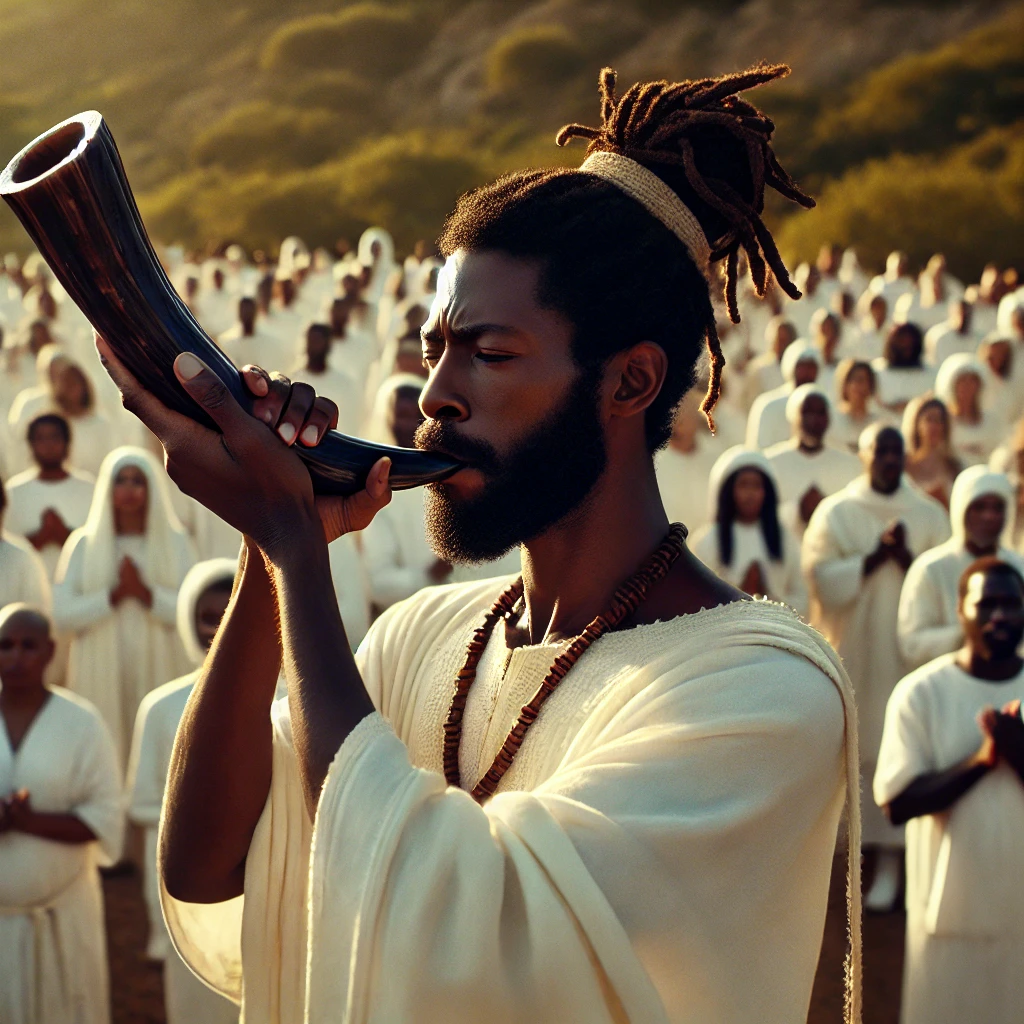What Does It Mean to Live by the Torah?
For many believers coming out of Christianity or waking up to their Hebrew Israelite identity, the phrase “Torah living” is heard often—but rarely understood in full.
Is Torah just the Old Testament? Is it about keeping rules to earn salvation? Is it Jewish? These are questions many ask when first learning the truth. But in reality, Torah living is simply about obeying the commandments of YAH, walking in His ways with faith and reverence, and patterning your life after the example of Yahushua the Messiah, who Himself kept the Torah perfectly.
This article is a beginner’s guide to Torah living—breaking down what it is, why it matters, and how to start walking in righteousness according to Scripture, not tradition.
(See our book, The Path: Of Righteousness)
What Is the Torah?
The Torah is the foundation of Scripture. It is often translated as “law,” but a more accurate definition is “instruction” or “teaching.”
The Torah includes the first five books of the Bible—Genesis, Exodus, Leviticus, Numbers, and Deuteronomy—and contains:
Moral commandments
Civil and community laws
Laws of cleanliness and worship
The Sabbaths and feast days
Dietary laws
Covenantal instructions for the nation of Israel
“The law of YAHUAH is perfect, converting the soul: the testimony of YAHUAH is sure, making wise the simple.”
— Psalm 19:7
Torah is not just “Jewish law.” It is the everlasting covenant between the Most High and His chosen people—the Israelites, which includes the scattered descendants in all four corners of the earth waking up today. Living by the Torah means embracing that covenant with both obedience and faith.
(See our book, The Path: Of Righteousness)
Why Torah Still Matters Today
Many Christian teachers claim that “we’re no longer under the law,” but Scripture says otherwise.
“For I am YAHUAH, I change not…”
— Malachi 3:6
“Think not that I am come to destroy the law, or the prophets: I am not come to destroy, but to fulfil.”
— Matthew 5:17
“Wherefore the law is holy, and the commandment holy, and just, and good.”
— Romans 7:12
Yahushua never abolished the Torah—He fulfilled it by walking it out perfectly and showing us how to do the same. Paul, who is often misunderstood, called the Torah holy and warned us against sin (which is transgression of the law – 1 John 3:4).
The Torah still matters because:
It defines what sin is
It sets Israel apart from the nations
It protects and blesses those who keep it
It prepares us for the Kingdom of YAH
Torah living is not about legalism—it’s about relationship, identity, and walking in YAH’s wisdom.
(See our book, Has the Law Been Done Away With?)
Key Principles of Torah Living
1. Keeping the Sabbath
The 7th-day Sabbath (Friday sunset to Saturday sunset) is a sign between YAH and His people.
“Remember the sabbath day, to keep it holy…”
— Exodus 20:8
“It is a sign between me and the children of Israel for ever…”
— Exodus 31:17
Resting on the Sabbath, refraining from buying, selling, and working, and gathering with others if possible is a foundational part of Torah living.
(See our book, All About The SABBATHS: Keeping, Guarding & Remembering)
2. Observing the Feast Days
YAH’s feast days (Leviticus 23) are not Jewish holidays—they are YAHUAH’s appointed times, and they reflect both past deliverance and future prophecy.
These include:
Passover and Unleavened Bread
Feast of Weeks (Shavuot)
Feast of Trumpets
Day of Atonement
Feast of Tabernacles
Keeping the feasts connects us to the heritage of Israel and points us to Yahushua’s role in redemption.
(See our book, Hebrew Israelite Biblical Feast Days: What They Are And How We Celebrate Them)
3. Eating Clean (Leviticus 11, Deuteronomy 14)
Living by the Torah includes a clean diet. This means:
No pork, shellfish, or scavengers
Only eating land animals that chew the cud and have split hooves
Only fish with fins and scales
No mixing blood, fat, or unclean ingredients
This isn’t a health trend—it’s about obedience and holiness.
(See our book, The Original Bible Diet: What Is the Bible Diet and Why Is Understanding Kashrut So Important to Kosher Eating?)
4. Loving Your Neighbor
Many overlook this, but Torah is not just about rituals. It’s about righteous behavior.
“Thou shalt love thy neighbor as thyself.”
— Leviticus 19:18
Caring for the poor, treating people justly, and walking in humility are all part of Torah living.
5. Wearing Fringes (Tzitzit)
“Speak unto the children of Israel… that they make them fringes in the borders of their garments…”
— Numbers 15:38–39
Fringes remind us to keep the commandments and not follow our own desires. They are an outward sign of inward obedience.
6. Rejecting Pagan Customs
“Learn not the way of the heathen…”
— Jeremiah 10:2
This includes rejecting:
Christmas
Easter
Sunday worship
Birthday rituals and other pagan-origin customs
Torah living means being set apart, not blending into worldly religious practices.
Torah and Yahushua: The Perfect Example
Yahushua (commonly called Jesus) did not come to do away with the Torah. He kept it. He lived it. He fulfilled it and taught it.
“He that saith he abideth in him ought himself also so to walk, even as he walked.”
— 1 John 2:6
Yahushua:
Kept the Sabbath (Luke 4:16)
Ate clean (Luke 24:42–43)
Kept Passover (Luke 22)
Taught love, mercy, and obedience (Matthew 23:23)
If we claim to follow Him, then we must walk as He walked—according to the Torah.
(See our book, Knowing the Father and the Son: Those who seek the truth will find it)
Misconceptions and Challenges
Misconception: “We’re under grace, not law.”
Truth: Grace does not cancel law. Grace forgives when we fall short—but we are still called to obey.
“Shall we sin because we are not under the law? YAHUAH forbid.”
— Romans 6:15
(See our book, Has the Law Been Done Away With? or The Symbiotic Relationship: Grace & Law)
Misconception: “The Torah is just for Jews.”
Truth: The Torah was given to Israel—and after the return of YAHUSHUA Ha’ Mashiac the believers in the Mashiac as well who were displaced by enslavement and hardship and forgot the ways of their forefathers were grafted back into Israel (Romans 11). It’s the marriage covenant of ALL Israelites not just “Jews”.
Challenge: “My family doesn’t understand.”
Yes, Torah living can bring division (Matthew 10:34–36), but obedience to YAH must come before pleasing people.
Torah Living Is Freedom, Not Bondage
Living by Torah doesn’t enslave you—it frees you from sin, confusion, and man-made religion.
“So shall I keep thy law continually for ever and ever. And I will walk at liberty: for I seek thy precepts.”
— Psalm 119:44–45
If you’re just beginning your walk, take it step by step. Start with the Sabbath, study the commandments, clean your diet, and seek truth with humility.
YAH is calling His people back to covenant. And Torah living is how we walk in that covenant every day.
“Blessed are the undefiled in the way, who walk in the law of YAHUAH.”
— Psalm 119:1
Shalom,
If you would like to have more information about our beliefs please check out our books: Unknown Hebrew Collection
Also, if you would like to know more about our new books and have access to promo codes please sign up to our Newsletter: Newsletter
Follow us at Substack for weekly blogs about a wide range of Israelite topics: Substack
Finally, if you would like to contact us or email us directly please go to: Email Us






